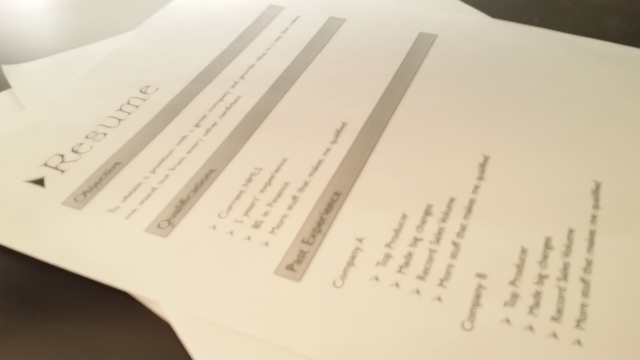One of the hardest parts of changing your career is learning to take what you have learned in your field and use it to benefit your brand new career. Your ability to do this will be put to the test time and time again, beginning first and foremost with your resumẻ. If your resumẻ does not show off your capabilities in doing this you won’t ever get the chance to show it off further down the line. Today we are going to look at some tips and tricks for creating a dynamite resumẻ that you can use to start your brand new career.
Out with the Old- It is always very tempting to revamp an old resumẻ instead of starting from the ground up, but if you are switching careers this is a dangerous move. Your old resumẻ will not highlight the right aspects of your capabilities the way a brand new one can. Start a brand new document. If you want to keep your old resumẻ to the side for reference that is alright, but ideally you will not really use it at all.
The Combination Format- The combination resumẻ is the career changer’s best friend. Traditional resumẻs use what a chronological format (where you list the positions you’ve held in chronological order). A combination format leads with achievements and skills, and follows up with the nitty-gritty of the jobs you’ve held. So instead of leading with your most recent job, you lead with your relevant skills. From there you move on to various achievements and credentials that fit with your new career (including degrees, awards, certificates etc.). Once you have gotten all of this information down you include your most recent positions held.
The combination format gives you room to show off how marketable you are as an employee in any industry, while also showing that you have held positions at other companies. This will help hiring managers look past the fact that your previous positions are unrelated and help them see how you can be an asset to the company.
Do your research- Having a list of skills is not guaranteed to be useful- having a list of relevant skills is. If you want your resumẻ to stand out you need to know what skills are relevant and useful in your new career. The same goes with commendations and awards. If you are just listing things that sound good but are entirely unrelated to the industry, you are wasting your hiring manager’s time. Find out what makes a candidate qualified and tailor your resumẻ to showcase those skills. Similarly, it doesn’t hurt to know the jargon before you send off your resumẻ. If you describe your skills the way someone in the industry would it looks a whole lot better than if you describe them in layman’s terms.
Changing careers can be difficult, and it often feels that a lot of our previous knowledge and experience goes out the window. However, if you change the way you think about what you’ve learned you will be able to present it in a way the keeps it relevant!

